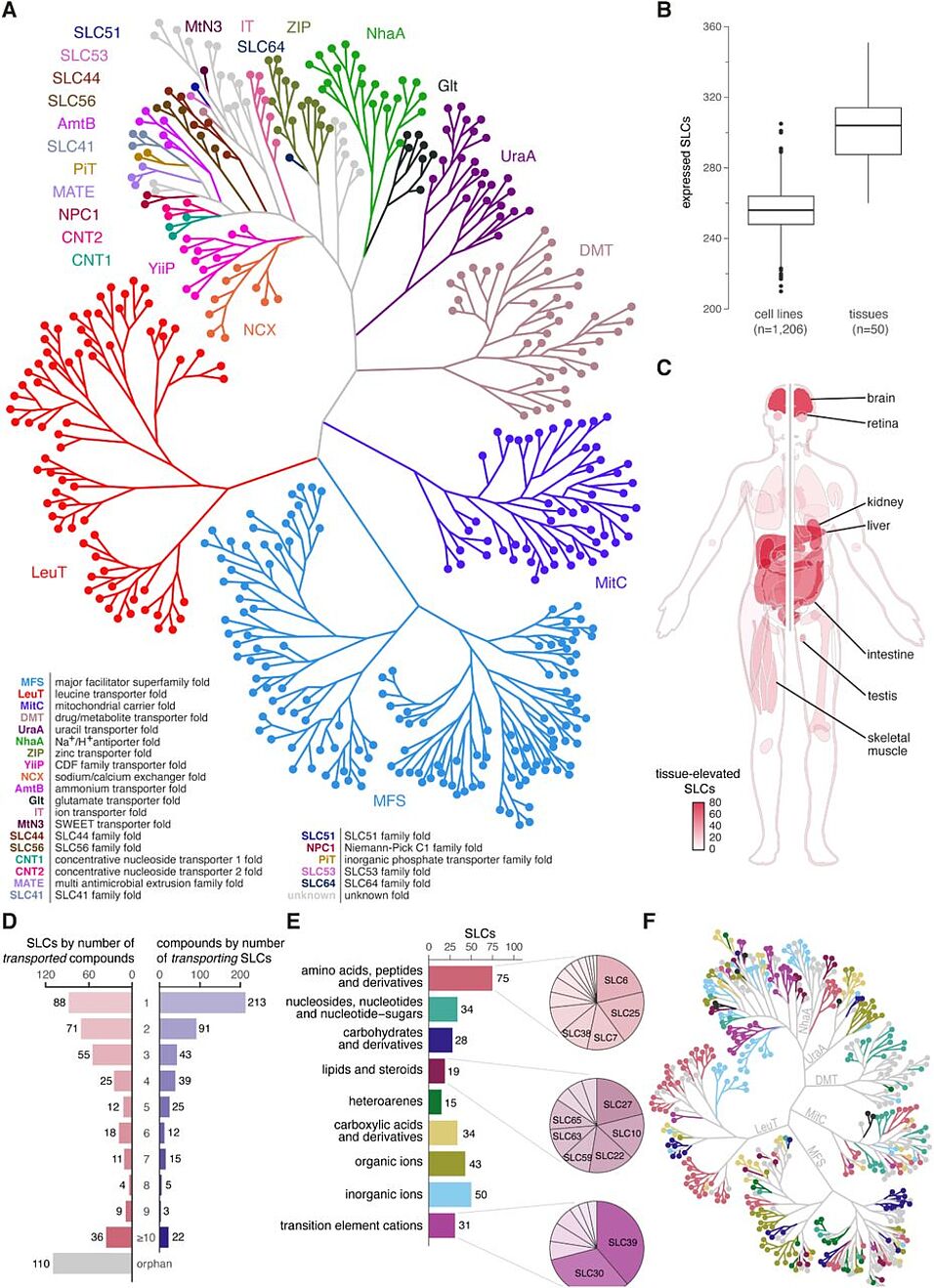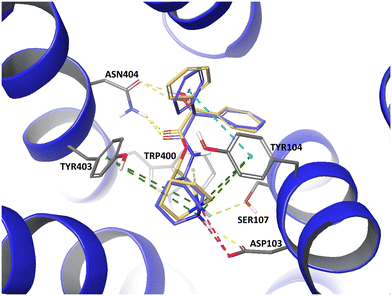Ulrich Goldmann, Tabea Wiedmer, Andrea Garofoli, Vitaly Sedlyarov, Manuel Bichler, Gernot Wolf, Eirini Christodoulaki, Alvaro Ingles-Prieto, Evandro Ferrada, Fabian Frommelt, Shao Thing Teoh, Philipp Leippe, Ben Haladik, Gabriel Onea, Martin Pfeifer, Mariah Kohlbrenner, Lena Chang, Paul Selzer, Jürgen Reinhardt, Daniela Digles, Gerhard F. Ecker, Tanja Osthushenrich, Aidan MacNamara, Anders Malarstig, David Hepworth, Giulio Superti-Furga: Data- and knowledge-derived functional landscape of human solute carriers. bioRxiv 2024, 16.10.2024.
DOI
https://doi.org/10.1101/2024.10.14.618155
Abstract
Research on the understudied solute carrier (SLC) superfamily of membrane transporters would greatly profit from a comprehensive knowledgebase, synthesizing data and knowledge on different aspects of SLC function. We consolidated multi-omics data sets with selected curated information from the public domain, such as structure prediction, substrate annotation, disease association and subcellular localization. This SLC-centric knowledge is made accessible to the scientific community via a web portal, featuring interactive dashboards and a tool for family-wide, tree-based visualization of SLC properties. Making use of the systematically collected and curated data sets, we selected eight feature-dimensions to compute an integrated functional landscape of human SLCs. This landscape represents various functional aspects, harmonizing local and global features of the underlying data sets, as demonstrated by inspecting structural folds and subcellular locations of selected transporters. Based on all available data sets and their integration, we assigned a biochemical/biological function to each SLC, making it one of the largest systematic annotations of human gene function and likely acting as a blueprint for future endeavours.
Funding
This study received funding from the RESOLUTE and REsolution consortia. RESOLUTE has received funding from the Innovative Medicines Initiative 2 Joint Undertaking under grant agreement No 777372. This Joint Undertaking receives support from the European Union’s Horizon 2020 research and innovation programme and EFPIA. REsolution has received funding from the Innovative Medicines Initiative 2 Joint Undertaking under grant agreement No 101034439. This Joint Undertaking receives support from the European Union’s Horizon 2020 research and innovation programme and EFPIA. This article reflects only the authors’ views and neither IMI nor the European Union and EFPIA are responsible for any use that may be made of the information contained therein. B.H. was supported by funds from the Austrian Science Fund FWF (DOI:10.55776/KLI1056 to K. Boztug). G.S-F. was supported by the Austrian Academy of Sciences.
Rights & permissions
This article is licensed under a Creative Commons Attribution 4.0 International License, which permits use, sharing, adaptation, distribution and reproduction in any medium or format, as long as you give appropriate credit to the original author(s) and the source, provide a link to the Creative Commons licence, and indicate if changes were made. The images or other third party material in this article are included in the article’s Creative Commons licence, unless indicated otherwise in a credit line to the material. If material is not included in the article’s Creative Commons licence and your intended use is not permitted by statutory regulation or exceeds the permitted use, you will need to obtain permission directly from the copyright holder.




